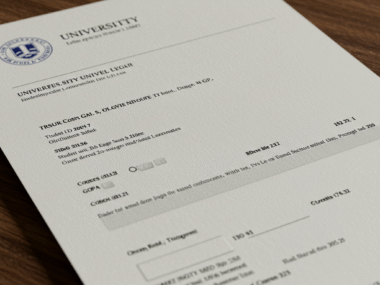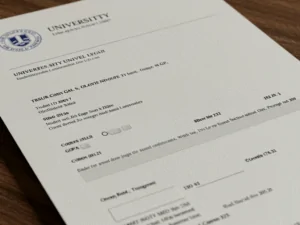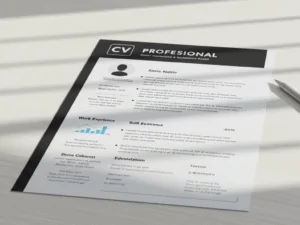Ever wondered how you’d keep your child’s education on track if life throws an unexpected challenge? An education insurance policy is like a safety net, ensuring your child can chase their dreams no matter what happens, be it rising school fees, job loss, or health issues.
In 2025, with the cost of education soaring and life’s uncertainties always looming, this financial plan is a must-have for parents. This guide explains why an education insurance policy is essential, how it works, its benefits, costs, and tips for choosing the right one. Let’s dive into why this policy is your key to securing your child’s academic future!
What Is an Education Insurance Policy?
An education insurance policy is a financial product that helps you save for your child’s education while protecting against risks like the policyholder’s death, disability, or financial hardship. It combines savings and insurance: you pay regular premiums (monthly, quarterly, or yearly), and the insurer builds a fund to cover school fees, books, and other education costs from primary school to university.
If something happens to you, the policy ensures your child’s education continues without interruption. In Nigeria, where private school fees can range from ₦200,000 to ₦5 million per year, this plan is a lifeline for families.
How It Works
- Pick a Plan: Choose a policy based on your child’s age, education goals (like attending university abroad), and budget.
- Pay Premiums: Contribute a fixed amount, say ₦10,000/month, for a set period (5–20 years).
- Save and Grow: Part of your premium is invested, building a fund with interest or returns.
- Get Protection: If you pass away or become disabled, the insurer may waive future premiums and/or pay a benefit to cover education costs.
- Receive Funds: When the policy matures (e.g., when your child starts university), you get the saved amount, or the insurer pays fees directly to schools.
Example: A parent starts a policy for their 3-year-old, paying ₦15,000/month for 15 years. By age 18, the policy provides ₦12 million for university, even if the parent faces financial trouble.
Why You Need an Education Insurance Policy
Education is one of the greatest gifts you can give your child, but it comes with a hefty price tag and risks. Here’s why an education insurance policy is a smart choice for Nigerian families in 2025:
1. Skyrocketing Education Costs
School fees are climbing fast in Nigeria and globally. In 2024, private primary schools in Lagos charged ₦500,000–₦2 million per year, while university fees ranged from ₦1 million (public) to ₦5 million (private), according to local reports. By 2030, these costs could double due to inflation. An education insurance policy lets you save systematically, locking in funds today to cover tomorrow’s expenses.
Benefit: You can afford quality education, whether at a top local school or an international university, without scrambling for funds.
2. Protection Against Life’s Uncertainties
Life can be unpredictable—job loss, illness, or sudden death can derail your ability to pay school fees. An education insurance policy acts as a financial shield:
- Death Benefit: If you (the policyholder) pass away, the insurer continues funding your child’s education, often waiving future premiums.
- Disability Benefit: If you become permanently disabled, the policy covers fees without further payments.
- Critical Illness Cover: Some plans pay out if you’re diagnosed with a serious illness, keeping education funds safe.
Example: A mother insures her son’s education but gets seriously ill when he’s 12. The policy pays ₦10 million for his secondary and university fees, ensuring he stays in school.
3. Disciplined Savings for Long-Term Goals
Saving for education without a plan is tough when you’re juggling rent, food, and other expenses. An education insurance policy forces you to save regularly, creating a dedicated fund. Unlike a regular savings account, it’s harder to dip into for non-education needs, so the money stays focused on your child’s future.
Benefit: Builds a reliable savings habit with guaranteed payouts, making big education goals achievable.
4. Tax Savings
In Nigeria, premiums paid for education insurance may qualify for tax deductions under personal income tax laws, reducing your tax bill. While tax rules are still developing, these policies often offer financial relief, letting you save more for your child.
Benefit: Lowers your taxes while securing your child’s academic path.
5. Customizable to Your Needs
Education insurance policies are flexible, letting you tailor them to your family’s situation:
- Coverage Amount: Choose from ₦5 million to ₦50 million, depending on whether you’re aiming for local or international education.
- Premium Period: Pay for 5, 10, or 15 years, based on your budget.
- Payout Options: Get a lump sum, yearly payments, or direct fee payments to schools.
- Extra Benefits: Add covers for critical illness, family protection, or even job loss.
Example: A single father picks a 10-year plan with ₦20,000/month premiums, ensuring ₦15 million for his daughter’s law school by age 20.
6. Shield Against Inflation
Many policies offer investment options where your premiums earn returns through stocks, bonds, or fixed-income funds. This helps your savings grow faster than inflation, preserving their value. In Nigeria, with inflation hitting 32% in 2024 (per National Bureau of Statistics), this feature is crucial to keep up with rising costs.
Benefit: Your savings stay strong, covering education expenses despite price hikes.
7. Peace of Mind for Parents
Knowing your child’s education is secure brings huge relief. You won’t worry about sudden financial hits or have to compromise on school quality. This peace of mind lets you focus on work, family, and enjoying life with your kids.
Benefit: Reduces stress, giving you confidence that your child’s dreams are protected.
8. Supports Your Child’s Global Ambitions
If your child dreams of studying abroad, an education insurance policy can fund international schools or universities, where fees can hit $20,000–$50,000/year (₦32–80 million). Some policies offer payouts in foreign currencies, making overseas education more affordable.
Benefit: Opens doors to global opportunities without financial strain.
Who Needs an Education Insurance Policy?
This policy is ideal for:
- Parents with Young Children: Start early (ages 0–10) to maximize savings and benefits.
- Single Parents: Ensures education funds are secure if you’re the sole provider.
- Middle-Income Families: Helps bridge the gap when savings alone aren’t enough.
- High-Income Families: Protects wealth and plans for elite or international education.
- Families with Multiple Kids: Covers all children’s education under one or multiple plans.
- Nigerian Diaspora: Funds education back home or abroad for kids left with relatives.
Example: A couple with three kids starts policies at ages 2, 5, and 8, paying ₦30,000/month per child. By university, each child gets ₦10–15 million, covering fees and living costs.
Types of Education Insurance Policies
Different plans suit different needs. Here’s a look at common types in Nigeria:
- Child Education Savings Plan:
- Focuses on building a fund through regular savings and investments.
- Pays a lump sum or installments at maturity (e.g., age 18).
- Example: A plan paying ₦20 million for university after 15 years of premiums.
- Whole Life Education Plan:
- Combines education savings with lifelong insurance cover.
- If the parent passes away, the child gets education funds, and the family receives a death benefit.
- Example: Pays ₦15 million for education and ₦5 million to the family if the parent dies.
- Endowment Education Plan:
- Fixed-term policy (e.g., 10 years) with guaranteed payouts at maturity.
- Includes death or disability benefits during the term.
- Example: Pays ₦12 million at maturity, or earlier if the parent becomes disabled.
- Unit-Linked Education Plan:
- Ties premiums to investment funds (stocks, bonds), offering higher returns but some risk.
- Includes insurance cover for death or disability.
- Example: Grows to ₦18 million if investments perform well, with a minimum guaranteed payout.
- Critical Illness Education Plan:
- Adds a payout if the parent is diagnosed with a serious illness (e.g., cancer).
- Ensures education funds are available during tough times.
- Example: Pays ₦10 million for education if the parent falls ill, plus regular maturity benefits.
Tip: Compare plans from insurers like Leadway Assurance, AIICO, or Custodian Life in Nigeria to find the best fit.
Benefits of an Education Insurance Policy
- Guaranteed Education Funding: Covers fees from primary to tertiary levels, locally or abroad.
- Financial Discipline: Encourages regular savings with locked-in funds.
- Risk Protection: Safeguards against death, disability, or illness.
- Inflation Hedge: Investment options help savings grow over time.
- Tax Relief: Potential deductions reduce your tax burden.
- Flexible Payouts: Choose lump sums or direct school payments.
- Family Support: Some plans include extra benefits for dependents.
Data Point: Over 60% of Nigerian parents worry about funding education, per a 2023 Leadway Assurance survey, making these policies a top solution.
Costs of an Education Insurance Policy
Costs vary based on the plan, coverage, and your child’s age. Here’s a breakdown for Nigerian families in 2025:
- Premiums: ₦5,000–₦100,000/month, depending on coverage (₦5–50 million) and term (5–20 years).
- Minimum Coverage: ₦5 million, suitable for public schools or polytechnics.
- High-End Coverage: ₦20–50 million, ideal for private universities or studying abroad.
- Additional Riders: Critical illness or job loss cover adds ₦2,000–₦10,000/month.
- Total Cost: For a 10-year plan with ₦20,000/month premiums, you pay ₦2.4 million total, receiving ₦10–15 million at maturity.
Example Budget:
- Child Age: 5
- Goal: ₦15 million for university at age 18
- Premium: ₦25,000/month for 13 years
- Total Paid: ₦3.9 million
- Payout: ₦15 million + bonuses (if investment-linked)
Tip: Start when your child is young to lower premiums and spread costs over a longer period.
How to Choose the Right Education Insurance Policy
With so many options, picking the best policy takes research. Follow these tips:
- Assess Your Goals:
- Where will your child study? (Local private school, public university, or abroad)
- What level of education? (Primary, secondary, or tertiary)
- Example: Aim for ₦20 million if targeting a private university in Nigeria.
- Check Your Budget:
- Can you afford ₦10,000–₦50,000/month without straining finances?
- Choose a term (5–15 years) that fits your income cycle.
- Compare Insurers:
- Look at reputable Nigerian companies like Leadway, AIICO, or Prudential Zenith Life.
- Check their claim settlement ratio (90%+ is good) and customer reviews.
- Understand the Plan:
- Is it savings-focused, insurance-focused, or both?
- What are the guaranteed payouts vs. projected returns?
- Are there penalties for missed premiums?
- Review Add-Ons:
- Do you need critical illness or job loss cover?
- Are family benefits included (e.g., for other dependents)?
- Read the Fine Print:
- Check for exclusions (e.g., pre-existing conditions).
- Understand surrender charges if you exit early (e.g., 20–50% loss in first 3 years).
- Consult an Agent:
- Meet a licensed insurance advisor to explain terms and tailor the plan.
- Avoid agents pushing high-premium plans beyond your means.
Tip: Request quotes from 2–3 insurers to compare premiums, payouts, and benefits.
Common Misconceptions About Education Insurance
- “It’s Too Expensive”:
- Truth: Plans start at ₦5,000/month, affordable for middle-income families. Compare this to ₦2 million/year for private schools.
- “I Can Save on My Own”:
- Truth: Regular savings lack discipline and insurance protection. Policies ensure funds are secure and grow.
- “It’s Only for Rich People”:
- Truth: Flexible premiums make it accessible to all income levels, from teachers to business owners.
- “It Takes Too Long to Mature”:
- Truth: Start early (child age 0–5), and the policy matures just in time for university.
- “Insurance Companies Don’t Pay Claims”:
- Truth: Reputable insurers with high claim ratios (e.g., Leadway) honor valid claims promptly.
Challenges and Solutions
- High Premiums: Choose a lower coverage amount or longer term to reduce monthly costs. For example, ₦10,000/month for 15 years vs. ₦20,000/month for 7 years.
- Inflation Risks: Opt for investment-linked plans to outpace inflation, but diversify with low-risk funds.
- Missed Payments: Some policies offer a grace period (30–60 days) or reinstatement options. Set up auto-debits to stay on track.
- Policy Lapses: Pay premiums consistently or choose plans with partial payouts if you exit early.
- Lack of Awareness: Educate yourself through insurer websites or free seminars hosted by companies like AIICO.
Why 2025 Is the Perfect Time to Get an Education Insurance Policy
- Economic Uncertainty: Nigeria’s high inflation (32% in 2025 makes saving without a plan risky. Policies protect against price spikes.
- Education Demand: Quality schools are competitive; secure funds ensure your child gets a spot.
- Digital Tools: Insurers offer online calculators and apps to customize plans easily.
- Tax Incentives: Nigeria’s 2025 budget may expand tax relief for insurance, per government hints.
- Global Opportunities: More Nigerian students study abroad (70,000+ in 2024, per UNESCO), requiring robust funding.
Sample Plan for Nigerian Parents
Scenario: Middle-Income Family
- Parent: 35 years old, earns ₦300,000/month.
- Child: 4 years old, aiming for private secondary school and university.
- Goal: ₦20 million by age 18 (14 years).
- Plan: Endowment plan with death and disability cover.
- Premium: ₦20,000/month for – Total Paid: ₦3.36 million (14 years).
- Payout: ₦20 million + 5% interest (~₦22 million).
- Extras: Critical illness cover for ₦2,000/month extra.
Steps
- Meet an insurer’s agent to discuss goals.
- Provide ID, income proof (e.g., payslip), and child’s birth certificate.
- Sign policy documents and set up auto-debit payments.
- Review progress yearly via insurer’s app.
Comparing Education Insurance to Other Options
| Option | Pros | Cons |
| Education Insurance | Guaranteed payouts, insurance cover, tax benefits. | Requires long-term commitment, penalties for early exit. |
| Bank Savings | Flexible withdrawals, low risk. | Low interest (2–5%), no insurance, easy to spend. |
| Mutual Funds | High returns (10–20%), flexible terms. | Market risk, no insurance, no guaranteed payout. |
| Fixed Deposits | Fixed returns (5–8%), safe. | Low growth, no protection for life risks, taxable. |
Winner: Education insurance for its blend of savings, protection, and growth.
Tips for Nigerian Parents
- Start Early: Begin when your child is 0–5 to spread costs and maximize returns.
- Budget Wisely: Allocate 5–10% of your income to premiums, adjusting other expenses.
- Choose Reputable Insurers: Stick to firms with NAICOM approval and strong ratings.
- Involve Your Spouse: Jointly plan to share premium payments or decision-making.
- Monitor the Policy: Check annual statements for fund growth and adjust if needed.
- Educate Your Child: Teach them the value of the plan to inspire academic effort.
- Combine Plans: Use insurance for education and other savings for emergencies).
Frequently Asked Questions
Is an education insurance policy worth it?
Yes, it secures your child’s education against financial risks and builds savings systematically, especially with rising school fees.
What if I can’t pay premiums anymore?
Many policies offer grace periods or partial payouts. Some let you pause and resume payments without losing coverage.
Can I cover multiple children in one policy?
Some plans allow this, but separate policies per child offer clearer payouts and flexibility.
How safe is the money I invest?
Reputable insurers are regulated by NAICOM, ensuring funds are safe. Choose low-risk plans for guaranteed returns.
Can the policy fund international education?
Yes, many plans cover overseas fees, with some offering payouts in dollars or euros.
Final Thoughts
An education insurance policy is more than a financial plan; it’s a promise to give your child the best education, no matter what life brings. In 2025, with Nigeria’s high inflation, rising school fees, and unpredictable challenges, this policy offers security, disciplined savings, and peace of mind.
Whether you’re a single parent in Abuja or a couple in Lagos, starting a plan now ensures your child’s dreams, from primary school to university, are protected. Compare policies, pick a budget-friendly option, and take the first step today. Your child’s future is worth every effort—why not secure it with an education insurance policy?










